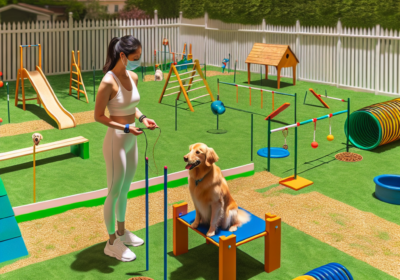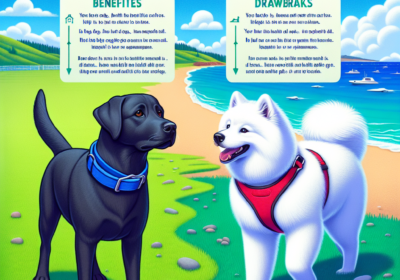Unleashing Harmony: A Comprehensive Look at Dog Training in Australia
In the land down under, where kangaroos roam and koalas snooze, there exists a dynamic relationship between humans and their loyal companions: dogs. Australia’s diverse landscapes and outdoor-centric lifestyle make it an ideal place for dog ownership, but with great companionship comes great responsibility. The art of dog training in Australia has evolved into a multi-faceted endeavor that not only shapes the behavior of these furry friends but also nurtures a harmonious coexistence between man and canine. As the link between humans and dogs strengthens, it is vital to understand the methods, philosophies, and resources that contribute to effective dog training.

The Spectrum of Training Philosophies
Dog training in Australia is a diverse field with varying approaches, ranging from traditional methods to modern, science-based techniques. The methods employed often reflect the trainer’s personal beliefs and experiences. Traditional methods, such as dominance-based training, emphasize the establishment of hierarchical roles between dog and owner. However, these techniques have come under scrutiny in recent years due to their potential to cause stress and undermine the human-canine bond.
On the other end of the spectrum are science-based methods rooted in positive reinforcement and operant conditioning. These techniques focus on rewarding desired behaviors rather than punishing undesirable ones. In a country that cherishes its wildlife and natural beauty, it’s no surprise that Australians are increasingly gravitating towards these humane and gentle approaches, fostering a deeper understanding of dogs’ cognitive and emotional capabilities.
The Role of Professional Trainers
For many dog owners in Australia, the journey to a well-behaved canine companion begins with the guidance of professional trainers. Reputable trainers emphasize methods that prioritize the well-being of dogs, building trust and enhancing the bond between owner and pet. Websites like K9 Behaviour (serve as invaluable resources, connecting owners with certified trainers who specialize in various aspects of dog behavior.
These trainers not only teach basic obedience commands but also address behavioral issues ranging from separation anxiety to leash aggression. The positive ripple effect of their work extends beyond well-mannered dogs, contributing to safer communities and a more inclusive society where dogs can coexist harmoniously.
Community Engagement and Education
Dog training isn’t solely about the interaction between dogs and their owners. It’s a communal effort that extends to neighbors, local councils, and public spaces. Responsible dog ownership is a core value in Australia, with education playing a pivotal role in fostering this mindset.
Community dog training classes have gained popularity, offering not only obedience instruction but also a platform for socialization. These classes provide an opportunity for dogs to interact with their peers, honing their social skills and reducing the likelihood of behavioral issues down the road. Additionally, dog owners can share their experiences, discuss challenges, and learn from one another, fostering a sense of camaraderie that extends beyond the training sessions.
Legislation and Regulation
Australia’s commitment to responsible dog ownership is reflected in its legislation and regulations. Across different states and territories, laws are in place to ensure the safety of both dogs and the wider community. Leash laws, for example, aim to prevent dog-related incidents and promote responsible behavior in public spaces. By respecting these regulations, dog owners contribute to a culture of safety and mutual respect.
It’s worth noting that while laws set a baseline, responsible dog ownership goes beyond mere compliance. The relationships we build with our dogs, rooted in empathy and understanding, are what truly make a difference in our communities.
The Ever-Growing Importance of Positive Reinforcement
In recent years, there has been a noticeable shift towards positive reinforcement as the preferred training method. This approach harnesses dogs’ natural instincts and motivations, rewarding desired behaviors with treats, praise, or play. The philosophy aligns well with the Australian spirit of fostering healthy relationships, whether human-human or human-canine.
Positive reinforcement isn’t just about teaching dogs to sit or stay; it’s about instilling a sense of trust and cooperation. This approach encourages dogs to view their owners as partners rather than dominators, creating a solid foundation for a lifetime of shared experiences. This ethos is brilliantly exemplified by resources like K9 Behaviour, which advocates for the benefits of positive reinforcement and its role in shaping well-adjusted dogs.
In the vast expanse of Australia, where natural beauty and outdoor adventures abound, dogs have become cherished companions on life’s journey. Dog training in Australia has evolved from traditional dominance-based methods to a more empathetic, science-based approach that nurtures the human-canine bond. With professional trainers, community engagement, and responsible ownership, Australians are shaping a society where dogs are not only well-behaved but also valued members of the community.
As we stride forward, let us remember that the heart of effective dog training lies in understanding, compassion, and positive reinforcement. The path to harmony is paved with treats, pats, and shared moments of joy that only a devoted human-canine partnership can bring.
Sources:
- K9 Behaviour (https://k9behaviour.com.au/)
- Australian Veterinary Association. (https://www.ava.com.au/policy-advocacy/policies/companion-animals/)
- RSPCA Australia. (https://www.rspca.org.au/campaigns/responsible-pet-ownership)
- New South Wales Government. (https://www.dpi.nsw.gov.au/animals-and-livestock/dogs/companion-animals)
- Victoria State Government. (https://www.dhhs.vic.gov.au/animal-welfare-victoria)
- Queensland Government. (https://www.business.qld.gov.au/industries/service-industries-professionals/veterinary-surgeons)
- Western Australia Government. (https://www.wa.gov.au/government/publications/responsible-dog-ownership-policy)







![The Dog Podcast Uncovers Startling Truths About What We Feed Our Dogs [Press Release]](https://yourhomeandgardenhub.com.au/wp-content/uploads/2024/08/dog-bowl-400x280.webp)


